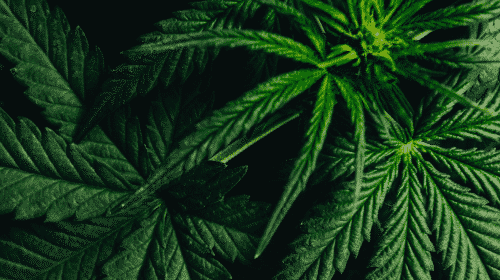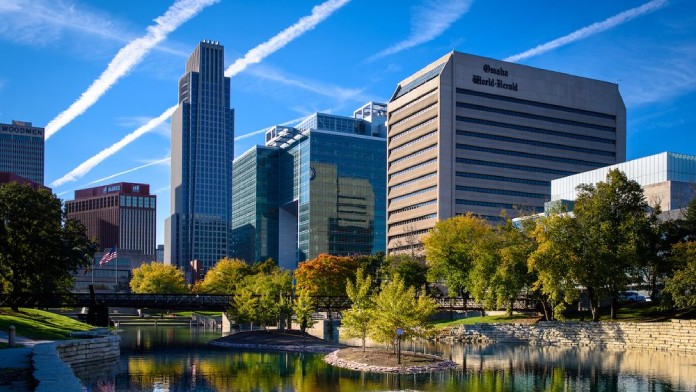Expert Insights
When it comes to drugs, one of Omaha’s biggest challenges is Interstate 80. The I-80 corridor is a well-known route for drug traffickers. The highway provides access to the northern half of the U.S., from coast to coast. Drugs make their way along this route from Mexico to Omaha and beyond. Nebraska law enforcement makes more than 430,000 traffic stops per year, and many result in successful drug seizures. But it’s time to take things to the next level. Rather than arrest a smuggler here and there, those on the front lines should share intelligence and take out the big fish. Fortunately, this type of collaboration is in the works, so state, local, and federal officials can take out entire distribution networks together.
~ Kerry Nenn
How Expensive is Drug Rehab in Omaha?
The cost of drug rehab in Omaha, Nebraska varies depending on the type and setting of the services. Outpatient drug and alcohol rehab cost an average of $1,855 in Nebraska.3 You are likely to spend significantly more on residential services. The average cost of rehab for a residential program in Nebraska is about $58,777.3
Fortunately, there are free rehabs and insurance options that reduce financial barriers to drug and alcohol rehab in Omaha, Nebraska.
How Much Does Drug Rehab Cost in Nebraska as a Whole?
Nebraska is ranked 42nd nationwide in terms of addiction treatment affordability, with an average cost of drug and alcohol rehab of $58,777 (without insurance).
- Medical detox is the most expensive, with an average cost of $144,907
- Long-term inpatient drug rehab in Nebraska costs an average of $51,867
- Outpatient addiction treatment in Nebraska costs an average of $8,618
- Outpatient methadone treatment is the most affordable, with an average cost of $7,657
How To Find Free Rehabs in Omaha
You can find many free drug and alcohol rehabs in Omaha, Nebraska.4 Many faith-based centers and non-profit programs offer drug and alcohol rehab services at no cost.4 Even if you do not qualify for Medicare or Medicaid, you may be eligible for funding from the Nebraska Behavioral Health System to cover your drug and alcohol rehab.5
As of 2024, there were over 120 drug rehab facilities across the state of Nebraska, many of which are in and around Omaha. Of those treatment facilities, the following numbers reflect how many offer free or low-cost addiction treatment programs:
Does Insurance Cover Rehab in Omaha, Nebraska?
Yes, typically insurance policies cover at least a portion of drug rehab in Omaha, Nebraska.6
Private Insurance
Private insurance companies are required to provide coverage for mental health services such as drug and alcohol rehab. However, a private insurance company may not cover the entire cost in Omaha, Nebraska. Employment-based insurance companies cover as much as 80% of drug and alcohol rehab costs.7
Popular private insurance include health maintenance organizations (HMOs) as well as insurance from employers, professional associations, and unions.7
Medicaid
Medicaid is a state and federal health insurance coverage for people with low income that varies from state to state.8 Full coverage for drug and alcohol rehab is covered in Omaha, Nebraska, through Medicaid.8 Available services include:5
- Crisis response
- Residential care
- Outpatient care
- Inpatient care
Medicare
Medicare is a federal health insurance program for people who are 65 and older or younger than 65 with a disability. 8 Medicare covers all drug and alcohol rehab services that are considered necessary and reasonable.9 You may receive a full range of services for rehab with Medicare.
How Do You Pay for Addiction Treatment in Omaha?
Lack of insurance, ineligibility for free rehab, or full free options should not be a barrier to rehab in Omaha, Nebraska. Several alternatives are available to finance addiction treatment at no cost or low cost. You can reduce the cost of drug and alcohol rehab by selecting programs with a sliding scale payment assistance, rehab scholarships, a state program, or a program that accepts Medicare or Medicaid.4
Find a Sliding Scale Rehab Program: A sliding scale rehab program will charge a fee based on your income. Many of the drug and alcohol rehab programs in Omaha, Nebraska, offer a sliding scale for payment. 4 You can discuss your income and the sliding scale terms with them to reduce your cost. You may pay a much lower fee than expected if you’re eligible based on income.
Choose a Program that Offers Payment Plans: Programs that offer payment plans will work with you to make payments over time if you do not have insurance. You can discuss offers of payment plans with the drug and alcohol abuse rehab program in Omaha, Nebraska to identify the most suitable plan.
Apply for a Rehab Scholarship: If you need financial assistance for drug and alcohol rehab in Omaha, Nebraska, you may qualify for a rehab scholarship.4 SAMHSA and the Center for Substance Abuse Treatment (CSAT) jointly administer the Substance Abuse Prevention and Treatment Block Grant (SABG) to all 50 states.10 This grant targets different categories of drug and alcohol rehab, including:10
- Pregnant women and women with dependent children.
- Intravenous drug users.
- Primary prevention services.
- Tuberculosis services.
- HIV/AIDS early interventions.
How Does Omaha Compare in Alcohol and Drug Use?
Omaha is the largest city in Nebraska, boasting an estimated population of around 851,000. Situated in Douglas County, Omaha is often voted one of the state’s best cities to live in, but many residents are beginning to experience a decreased quality of life due to substance abuse. Specifically, drugs laced with fentanyl are driving overdoses and deaths in the area. In 2022, the Drug Enforcement Administration (DEA) Omaha Division seized almost 4.7 million lethal doses of fentanyl in both pill and powder form.22 These numbers illustrate the importance of all 37 accredited alcohol and drug rehab centers in Omaha.
Drug use in Nebraska varies among the residents based on the type of substance. Data from 2018 showed that among the individuals in Nebraska who are 12 years or older: 1

About .2% used heroin in the past year.

Just under 13% used marijuana in the past year.

Nearly 8% used marijuana in the past month.

About 10% used illegal drugs in the past month.
Alcohol consumption is common in the Omaha, Nebraska metropolitan area, where 2
Describe Themselves as Heavy Drinkers
Have at Least One Alcoholic Drink a Month
Describe Themselves as Binge Drinkers
Alcohol and Drug Laws in Omaha
Driving under the influence (DUI) of drugs and alcohol is considered a crime in Omaha, Nebraska.16 However, the Nebraska legislature has provisions for you to get treatment when convicted of DUI.
Specialized Substance Abuse Supervision (SSAS): Driving under the influence (DUI) of drugs and alcohol is considered a crime in Omaha, Nebraska.16 However, the Nebraska legislature has provisions for you to get treatment when convicted of DUI. Specialized Substance Abuse Supervision (SSAS) is a sentencing alternative that consists of substance abuse treatment and intensive supervision.17
The Good Samaritan Overdose Prevention Laws: The Good Samaritan overdose prevention laws in Nebraska exempt you from criminal liability when you request medical assistance in response to an overdose.18 You don’t have to avoid contacting law enforcement when you witness an overdose. You can confidently call law enforcement and paramedics if your loved one is experiencing an overdose because you’ll not be held liable. 18
Advanced Mental Health Directives Act: In 2020, the Advanced Mental Health Directives Act was established to address reluctance toward treatment.5 You can document your preferred drug and alcohol rehab treatment for care in Omaha, Nebraska, using an Advance Mental Health Care Directive. This document will be useful if you develop a crisis or lose capacity during drug and alcohol rehab. Your healthcare provider can use the document to make decisions based on your preference.5
Choosing the Right Level of Care
There are various addiction treatment settings available in Omaha, Nebraska, for drug and alcohol rehab. You can select a treatment setting based on the severity of your condition, your personal schedule, and your preference to spend the night at the facility.
Medical Detox
Medical detox, which involves 24/7 medical supervision and monitoring, is often necessary for withdrawal from alcohol, sedatives, and opioids. Medical detox involves the administration of withdrawal medications, as well as supportive medical care to ensure your safety and comfort throughout the withdrawal process. Detox is generally the first step in your recovery journey.
Inpatient Rehab
Inpatient rehab is an intensive program for people who need withdrawal management, nursing care, and primary medical and nursing care.11 A benefit of receiving inpatient services is that the level of treatment is appropriate for severe illness. You have access to rehab services around the clock, which is crucial in relapse prevention.11 It’s beneficial to have timely access to healthcare professionals who can address severe withdrawal symptoms.
Outpatient Care
There are three main types of outpatient drug and alcohol rehabs:
Standard outpatient treatment is typically provided as initial treatment for mild or moderate drug and alcohol use disorder.11 They offer medications to ease withdrawal symptoms and cravings, as well as group and individual programs.11 An important benefit of standard outpatient treatment is the flexible schedule. You generally have the option of treatment during the day, in the evenings, before or after school or work, and on the weekends.11
Intensive outpatient programs (IOPs) offer drug and alcohol rehab for serious conditions. The services are available 24 hours a day in an outpatient setting.11 Intensive outpatient programs do not require an overnight stay.11 The benefit of these programs is that you can get support from friends and family in the community during treatment.
Partial hospitalization programs (PHPs) are for people who have completed residential treatment.11 The services are provided during the week for 6 to 8 hours, and you leave the facility after the service ends.11 These programs are a great option if your environment supports recovery, but you need structure to prevent relapse. A benefit of a PHP setting is that you can maintain some of your daily routines during rehab.
Telehealth and Online Addiction Treatment
Telehealth is a delivery mode for drug and alcohol rehab that does not require face-to-face interaction with the healthcare provider.12 Telehealth is a delivery mode for drug and alcohol rehab that does not require face-to-face interaction with the healthcare provider. Telehealth connects you to a health professional in a different location. Technology options for telehealth include real-time interaction with video calls, telephones and web-conferencing platforms.12
Should You Travel to Omaha for Drug Rehab?
You may consider traveling to Omaha for addiction treatment if you have:
- Support from loved ones who live in the area.
- Access to drug and alcohol rehab programs that meet all of your needs.
- The desire to leave your old environment and seek treatment in a distant city.
Neighborhoods in Omaha, Nebraska to Consider for Treatment
Omaha may be the capital city of Nebraska, but you are not restricted to city life if you decide to seek treatment in this area. You have the option of a drug and alcohol rehab program in a serene environment with plenty of greenery in the following neighborhoods:15
- Northwest Omaha, with its parks and quiet residential areas
- West Omaha, a scenic suburban area with plenty of trees and restaurants
Resources
- Substance Abuse and Mental Health Service Administration. (2020). 2016-2018 NSDUH Substate Region Estimates.
- Gamble, M. S., Mawokomatanda, T., Xu, F., Chowdhury, P. P., Pierannunzi, C., Flegel, D., Garvin, D., Town, M. (2017). Surveillance for certain health behaviors and conditions among states and selected local areas — behavioral risk factor surveillance system, United States, 2013 and 2014. Surveillance Summaries, 66(16), 1–144
- National Center for Drug Abuse Statistics. (2022). Average cost of drug rehab.
- Free Rehab Centers. (n.d.). Omaha, Nebraska: Free alcohol, drug and other rehab resources in Omaha.
- Nebraska Department of Health and Human Services. (2022). Treatment and recovery.
- U.S. Department of Health & Human Services. (2021). Mental health and substance use insurance help.
- Motbabai, R., Mauro, C., Wall. Barry. C. L., & Olfson, J. (2020). Private health insurance coverage of drug use disorder treatment: 2005-2018.
- U.S. Department of Health & Human Services. (2015). What is the difference between Medicare and Medicaid?
- Centers for Medicare and Medicaid Services. (2016). Medicare coverage of substance abuse services.
- Benefits.gov. (n.d.). Substance abuse and treatment grant.
- US Department of Health and Human Services. (2016). Facing Addiction in America: The Surgeon General’s Report on Alcohol, Drugs, and Health [Internet]. Substance Abuse and Mental Health Services Administration (US).
- Substance Abuse and Mental Health Services Administration (SAMHSA). (2021). Telehealth for the treatment of serious mental illness and substance use disorders.
- Sachdeva, A., Choudhary, M., & Chandra, M. (2015). Alcohol Withdrawal Syndrome: Benzodiazepines and Beyond. Journal of Clinical and Diagnostic Research : JCDR, 9(9), VE01–VE07.
- Findtreatment.gov.(n.d.). Find treatment. Substance Abuse and Mental Health Administration.
- RentPath Holdings, Inc. (2022). Omaha city guide: neighborhoods and things to do.
- Nebraska Legislature. (n.d.). Nebraska revised statue 60-6, 196.
- Nebraska Judicial Branch. (2018). Evaluation of probation’s specialized substance abuse supervision (SSAS) program demonstrates success.
- Nebraska Legislature. (2017). 28-472. Drug overdose; exception from criminal liability; conditions.
- Gonzales, R., Hernandez, M., Murphy, D. A., & Ang, A. (2016). Youth recovery outcomes at 6 and 9 months following participation in a mobile texting recovery support aftercare pilot study: Follow-up of a mobile texting aftercare study. The American Journal on Addictions, 25(1), 62-68.
- Shechtman, Z., & Kiezel, A. (2016). Why do people prefer individual therapy over group therapy? International Journal of Group Psychotherapy, 66(4), 571-591.
- Smart Recovery. (2022). Our approach: Key areas of awareness and change.



